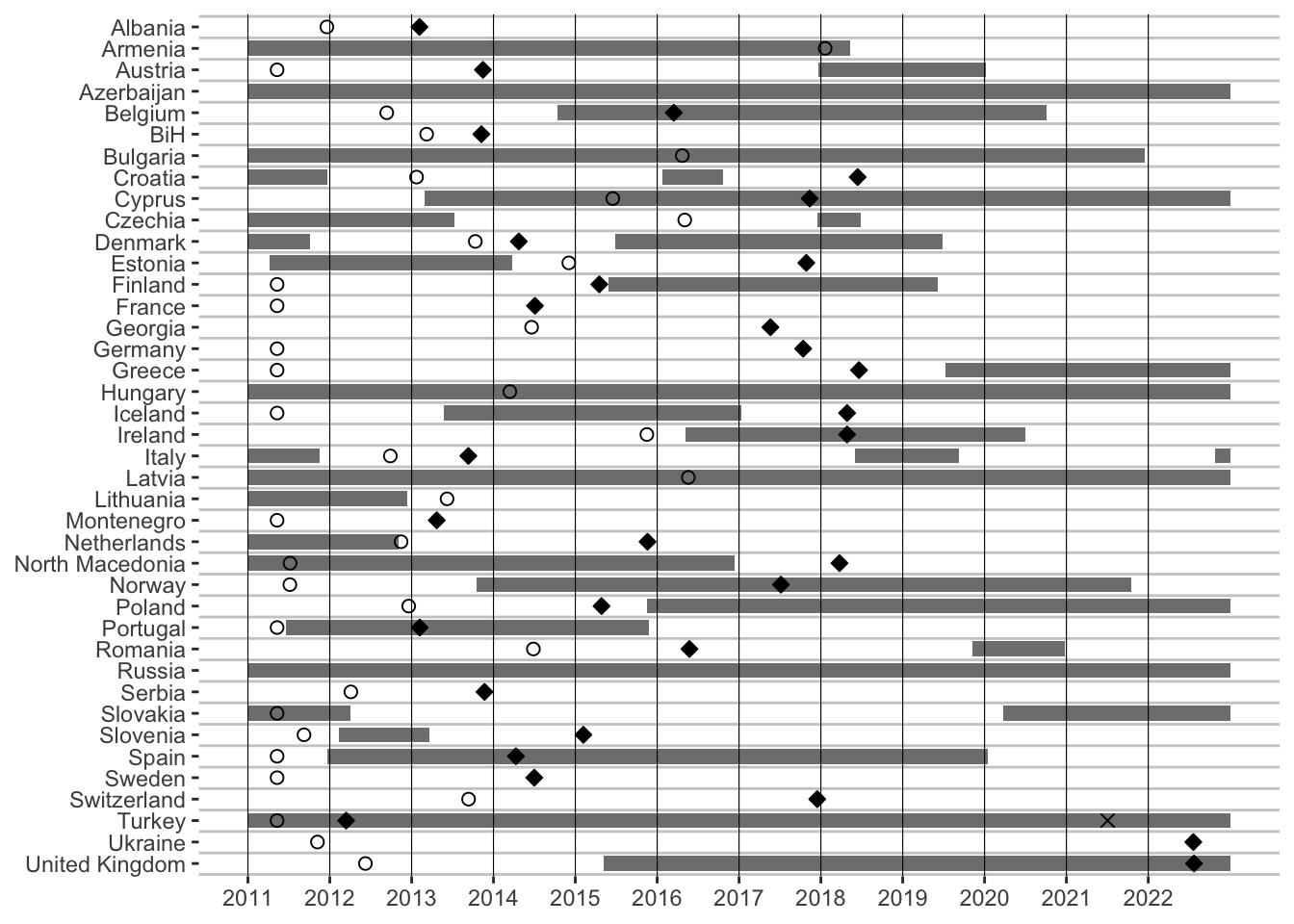
Important links
- Full article
- My co-authors, Andrea Krizsan and Conny Roggeband, have written a short blog summary of our article for The Loop: https://theloop.ecpr.eu/whos-afraid-of-the-istanbul-convention-understanding-the-debate-over-gender-equality-in-europe/
Abstract
Across Europe, contention has emerged over the Istanbul Convention, a treaty combatting violence against women. The Convention has become a main arena for contention over gender and sexual equality. Right-wing forces mobilize nationally—and transnationally—to advocate for traditional values and oppose so-called ‘gender ideology’, while progressive actors resist efforts to curtail women’s rights. Consequently, while many have ratified the Convention, several countries have not. This article asks which causes motive ratification; which causes underlie non-ratification? We present a qualitative comparative analysis (QCA) on 40 European states to disentangle the causal complexity of ratification decisions. We identify four pathways for ratification, driven by feminist egalitarian norms, international conditionality, pro-European governments at odds with social opposition, and societies unwilling to mobilize for conservative religious institutions. We unpack these causal patterns in four minimalist case studies. The article reveals causation underlying contention between pro-gender, anti-gender, and state actors, and resultant policy outcomes.
Important figures
| Ratification status | Countries |
|---|---|
| Ratified in 2012 | Turkey** |
| Ratified in 2013 | Albania, Austria, Bosnia and Herzegovina, Italy, Montenegro, Portugal, Serbia |
| Ratified in 2014 | Andorra, Denmark, France, Malta, Monaco, Spain, Sweden |
| Ratified in 2015 | Finland, Netherlands, Poland*, Slovenia |
| Ratified in 2016 | Belgium, Romania, San Marino |
| Ratified in 2017 | Cyprus, Estonia, Georgia, Germany, Norway, Switzerland |
| Ratified in 2018 | Croatia, Greece, Iceland, Luxembourg, North Macedonia |
| Ratified in 2019 | Ireland |
| Ratified in 2022 | Ukraine, United Kingdom |
| Not ratified as of March 2021 | Armenia, Azerbaijan, Bulgaria, Czechia, Hungary, Latvia, Lichtenstein, Lithuania, Moldova, Russia, Slovakia |
| Condition (abbreviation) | Raw data source | Range (min., mean, max.) | Calibration method | Calibration thresholds | Set scores |
|---|---|---|---|---|---|
| Liberal democracy backsliding (LDB) | V-Dem (2013, 2021): v2x_libdem | -0.41, -0.035, 0.35 | direct |
full incl.: -0.1 crossover: -0.08 full excl.: 0 |
|
| Solid right-wing government (RGOV) | ParlGov | assignment |
1: all RW gov. 0.75: RW gov. after signing 0.45: RW gov. at signing, not after 0.25: some RW gov. after signing 0: no RW gov. |
||
| Strong social opposition to gender equality (OPPG) | European Values Survey (EVS), European Social Survey (ESS) | 0.04, 0.44, 0.93 | assignment |
1: strong opp. 0.66: fairly strong opp. 0.33: somewhat strong opp. 0: not strong opp. |
|
| Homogenous religious majority (HRM) | European Values Survey (EVS), European Social Survey (ESS) | assignment |
1: majority Catholic, Orthodox, or Islamic 0: no such majority |
||
| Strong women’s empowerment (WPOW) | V-Dem (2020): index of v2x_genpp and v2x_cspart | 0.97, 0.842, 0.35 | direct |
full incl.: 0.97 crossover: 0.9 full excl.: 0.35 |
|
| Strong social support for women’s equality (WEQU) | European Values Survey (EVS), European Social Survey (ESS) | 0.02, 0.234, 0.57 | assignment |
1: strong support 0.66: fairly strong support 0.33: somewhat strong support 0: not strong support |
|
| EU candidacy (EUC) | 2020 EU candidates list | assignment |
1: EU candidate 0: non-candidate |
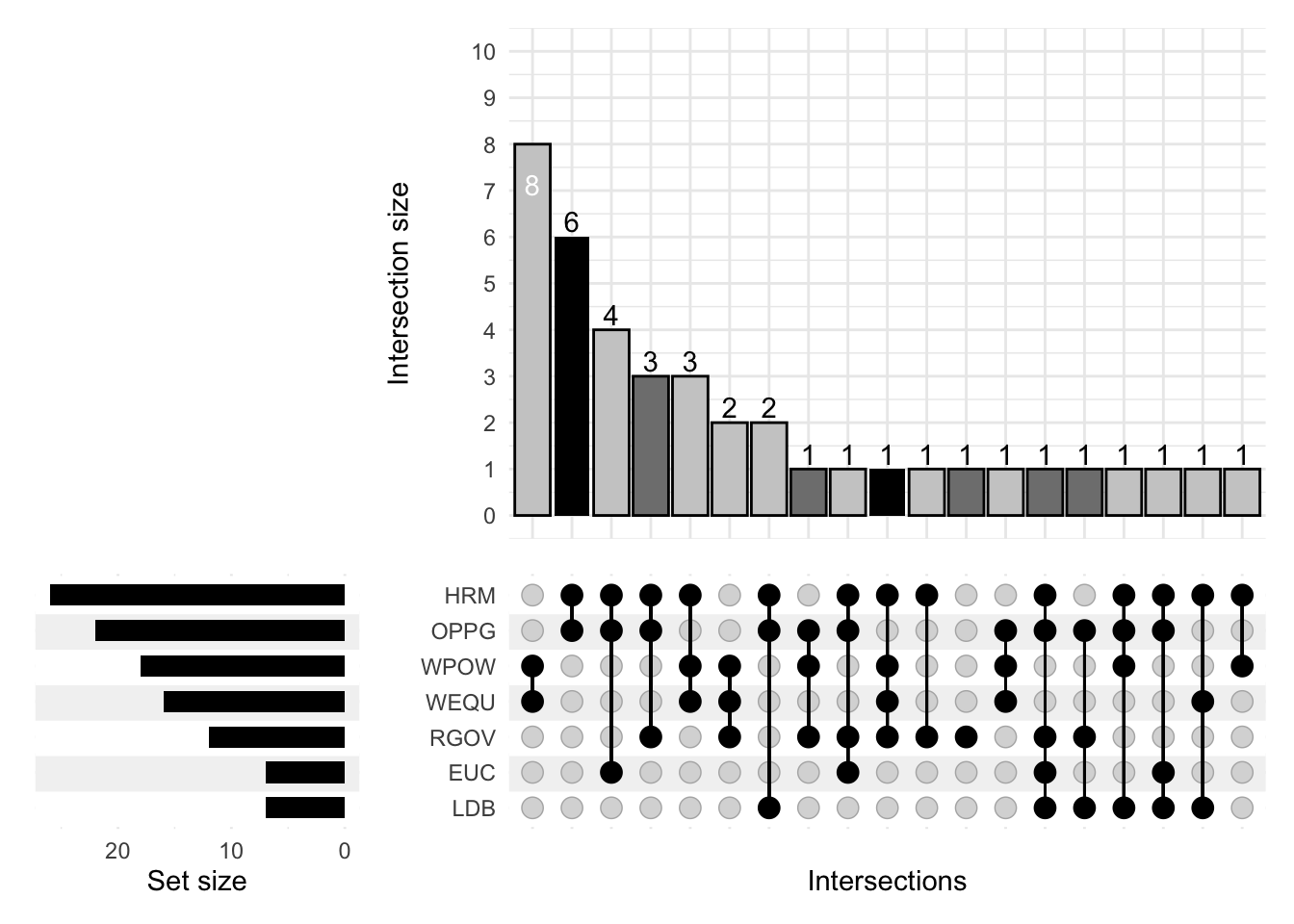
To produce the most parsimonious solution we reduce the complexity of the truth table. Minimization of our truth table produces four configurations of conditions that seemingly motivate ratification of the Istanbul Convention:
WEQU + LDB * EUC + LDB * RGOV + OPPG * HRM → IC
This expression reads as follows:
- strong social support for women’s equality (WEQU) or
- not liberal democratic backsliding (\(\sim\)LDB) and EU candidacy (EUC) or
- liberal democratic backsliding (LDB) and not solid right-wing government (\(\sim\)RGOV) or
- not strong social opposition to gender (\(\sim\)OPPG) and a homogenous religious majority
are sufficient for Istanbul Convention ratification (IC).
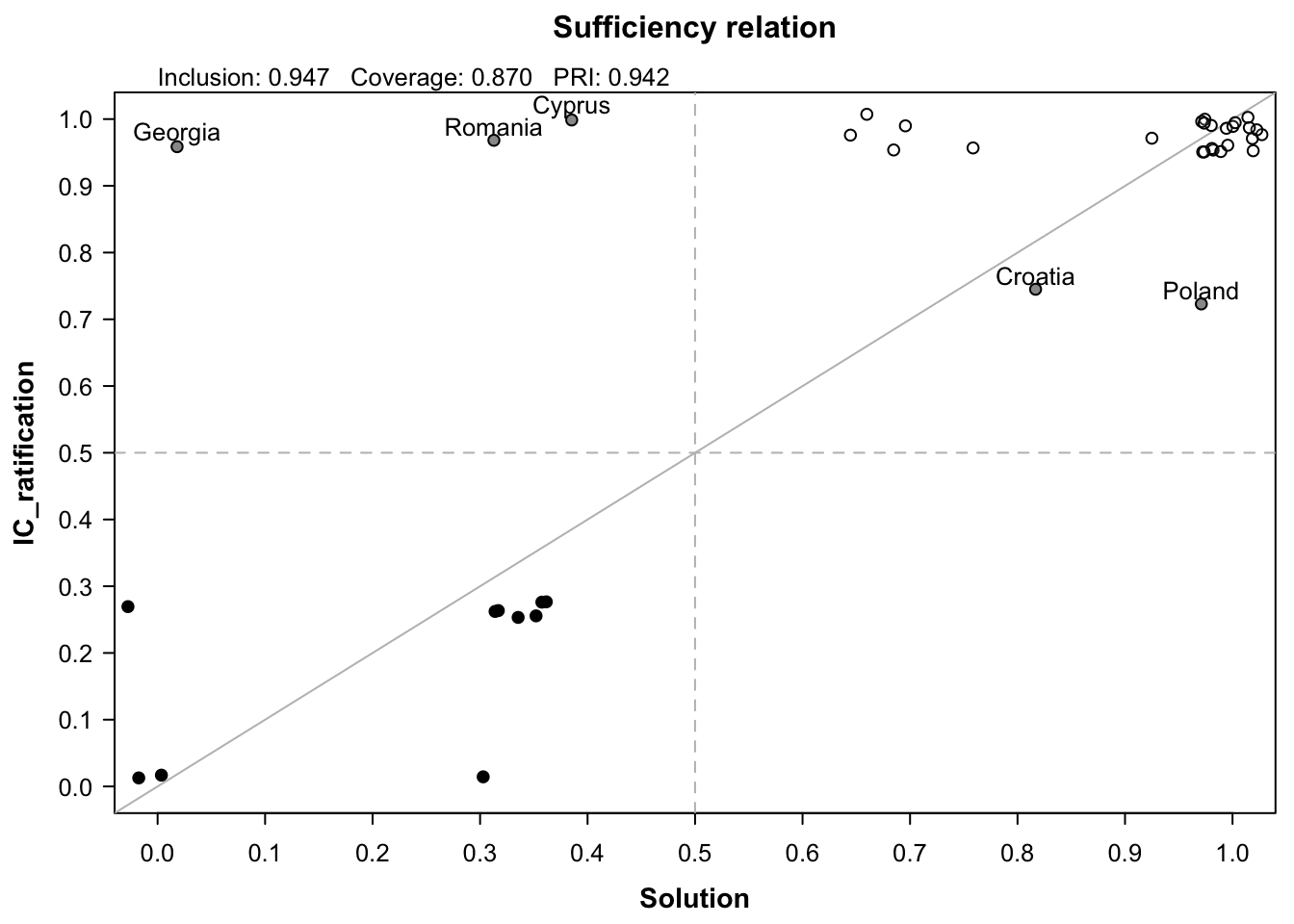
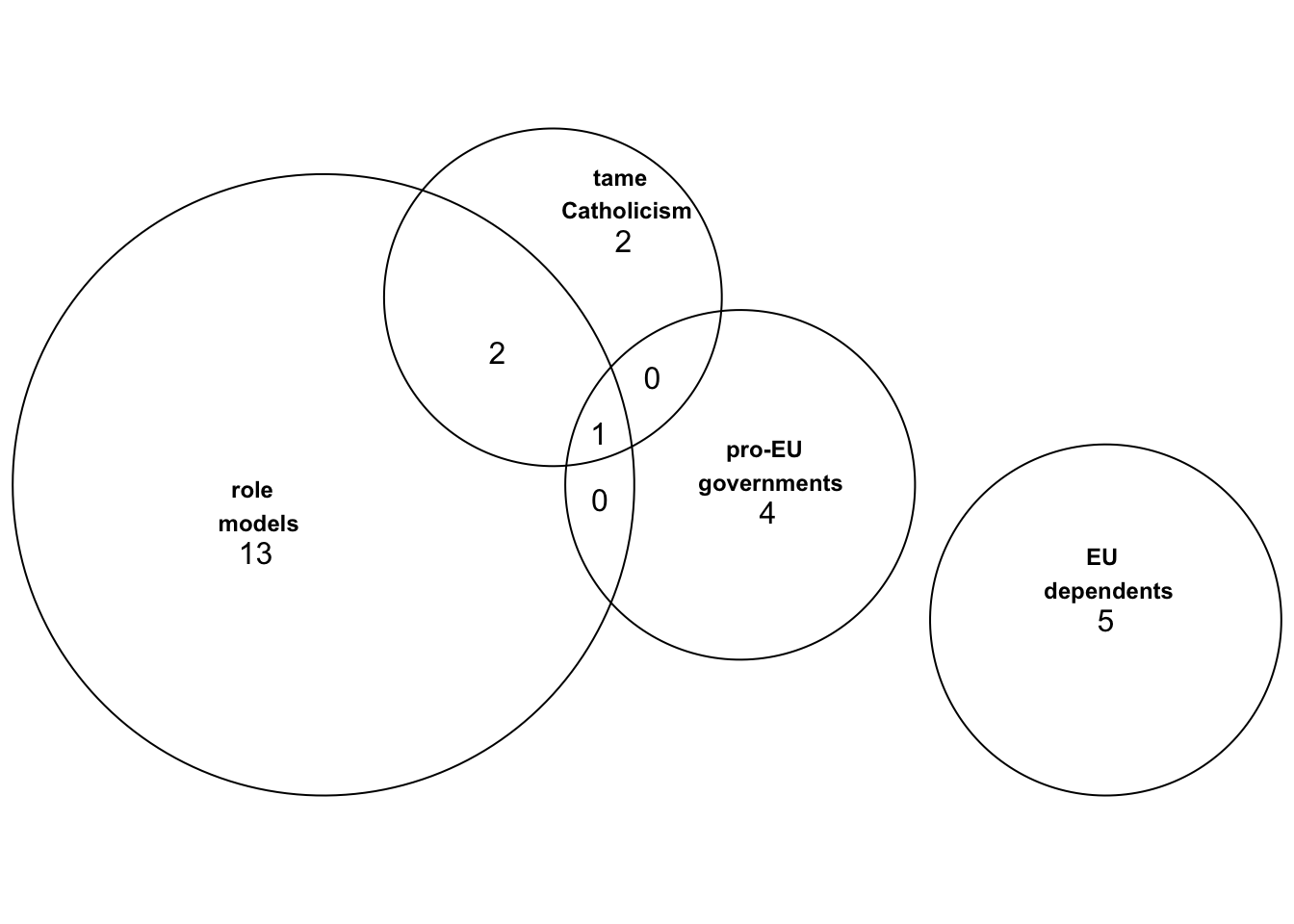
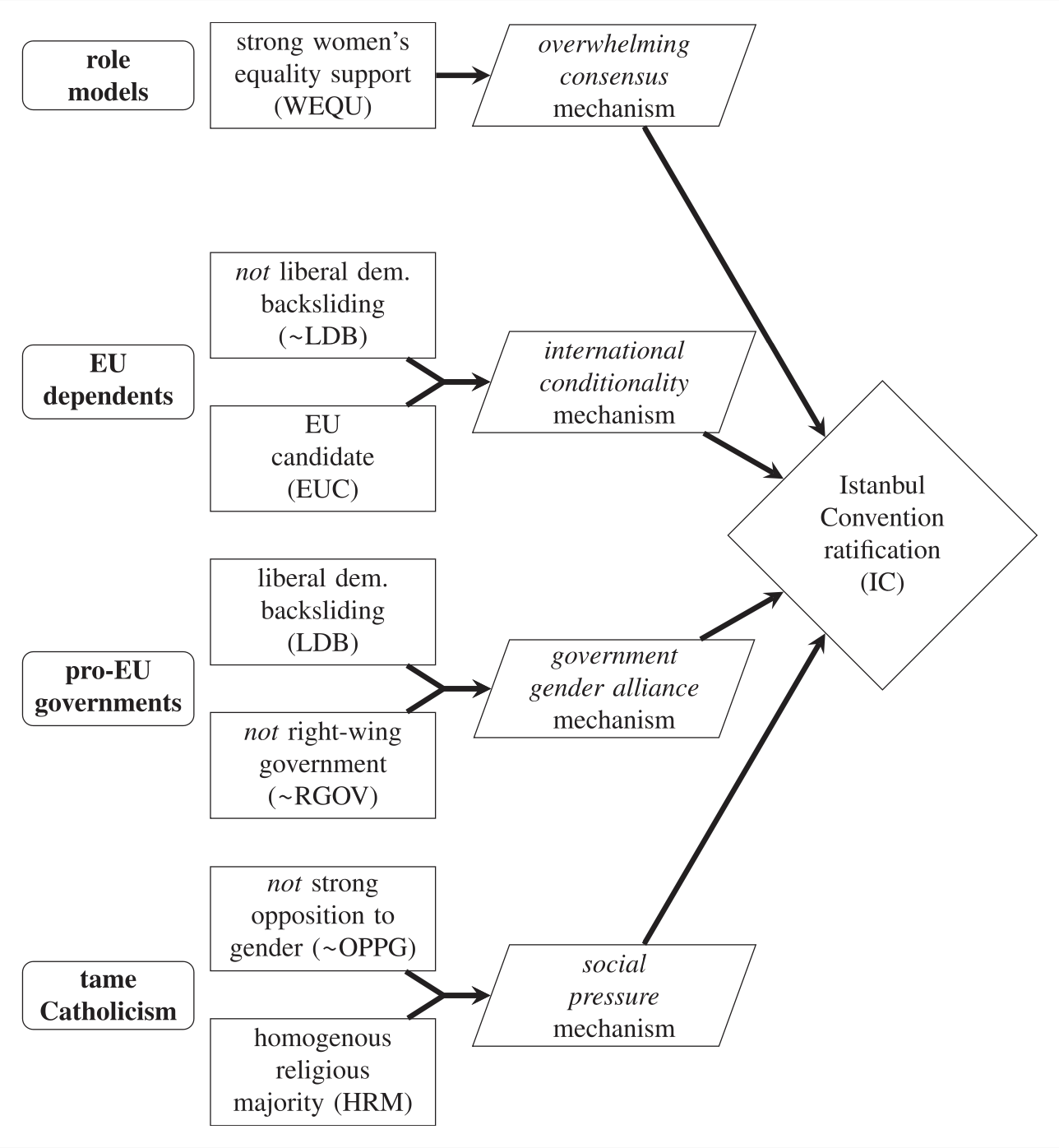
Citation
@article{KrizsanRoggebandZeller2024,
title={Who is Afraid of the Istanbul Convention? Explaining Opposition to and Support for Gender Equality},
author={Krizsán, Andrea and Roggeband, Conny and Zeller, Michael C},
journal={Comparative Political Studies},
volume={58},
number={10},
pages={2161--2200},
year={2024},
publisher={Sage}
}